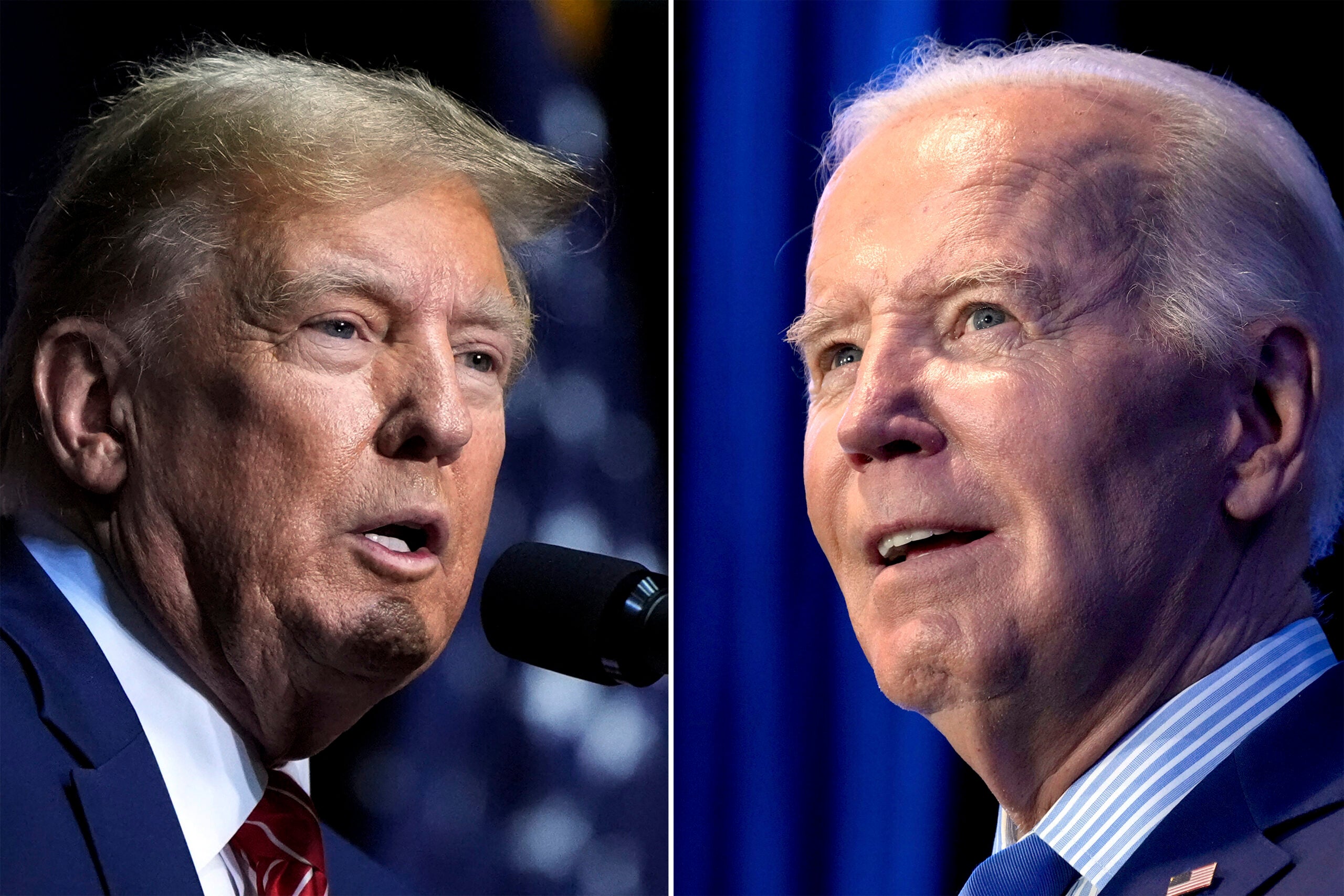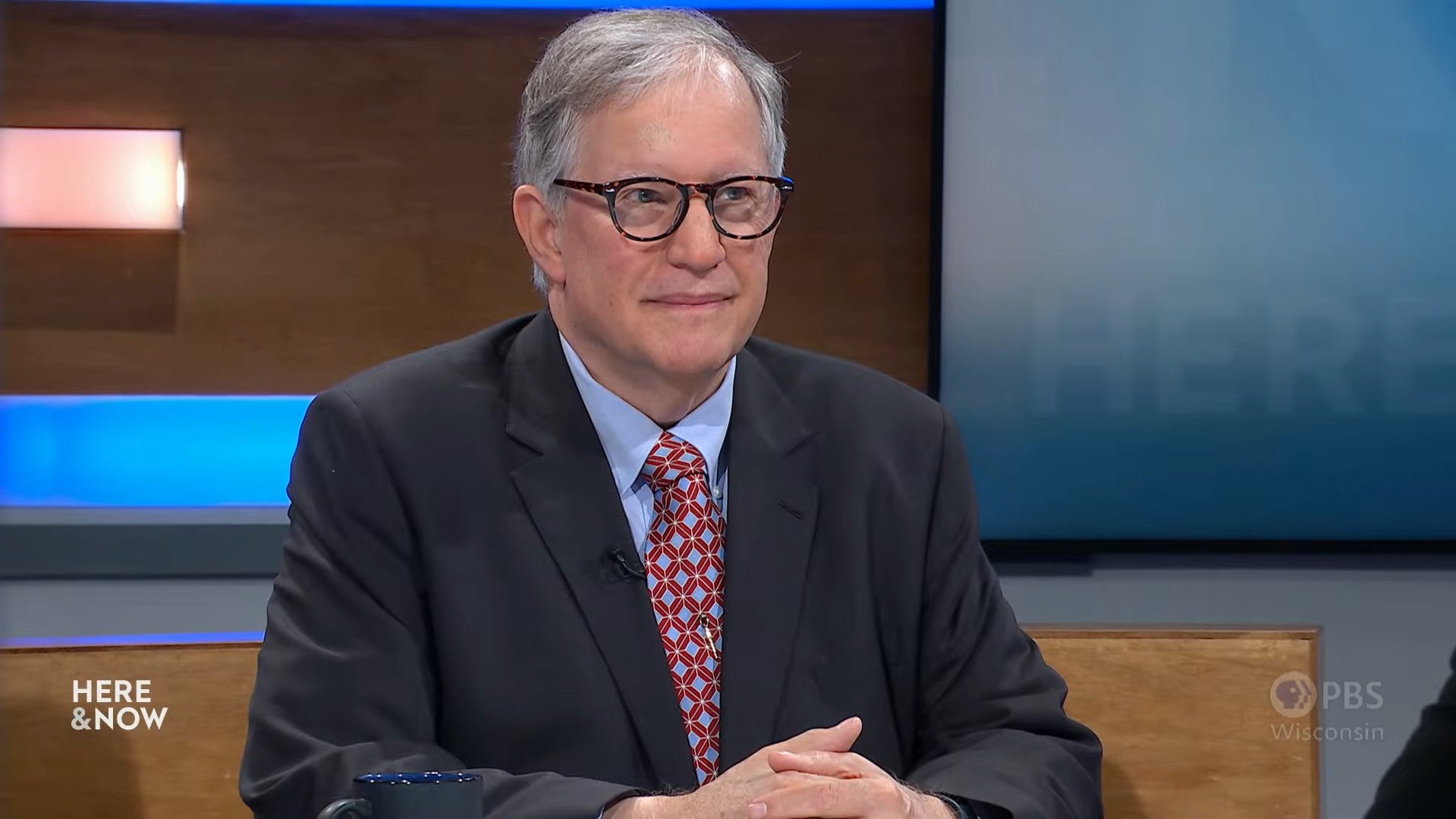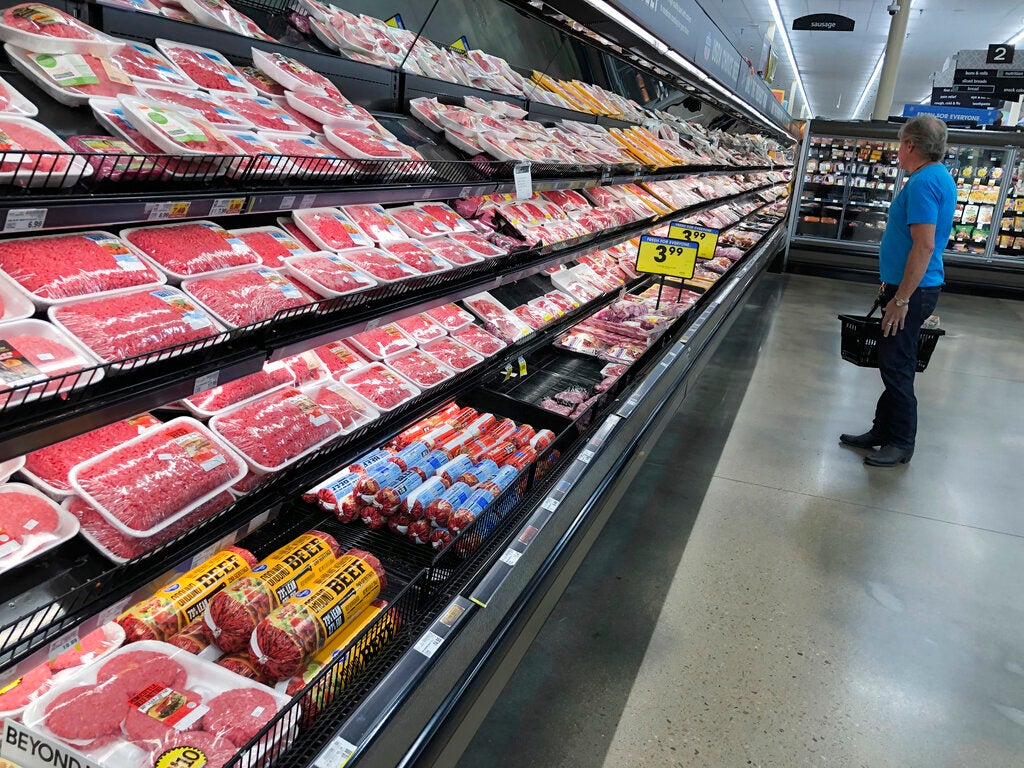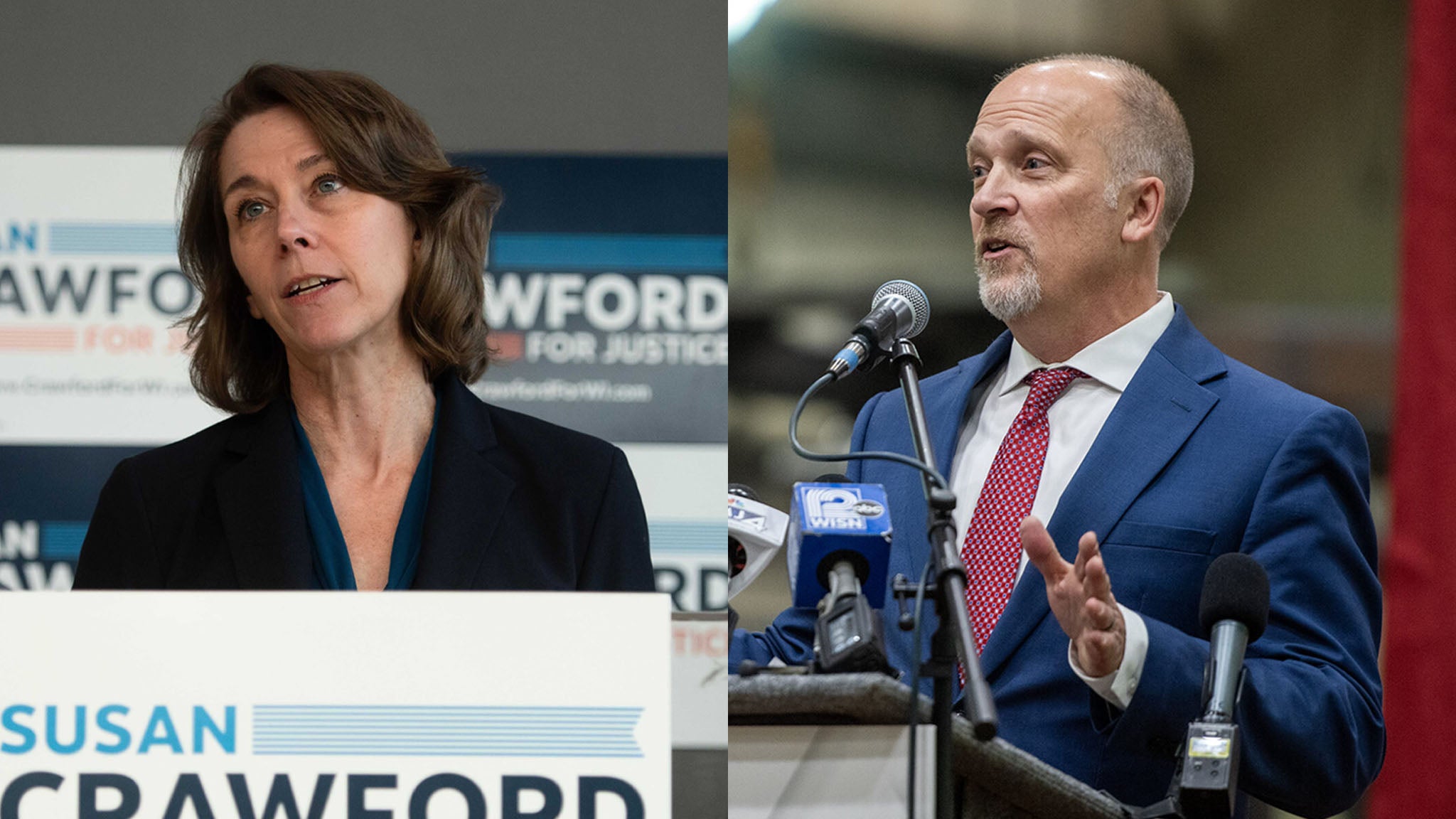President Joe Biden and former President Donald Trump are virtually tied in Wisconsin, according to the latest survey from the Marquette Law School Poll.
The poll found a 50-50 split among registered Wisconsin voters, an indication of another close race between two candidates whose last run in the Badger State was determined by a margin of less than 1 percent.
“You’ll be shocked to know it’s a close race,” said Marquette pollster Charles Franklin. “It’s just tightened, but it’s still dead tight.”
News with a little more humanity
WPR’s “Wisconsin Today” newsletter keeps you connected to the state you love without feeling overwhelmed. No paywall. No agenda. No corporate filter.
The survey also found that Democratic U.S. Sen. Tammy Baldwin leads Republican Eric Hovde among both registered and likely voters.
The poll took place after Trump was found guilty in New York on felony hush money charges, and asked voters how they felt about that trial and the possibility of future prosecutions of political figures.
It was released a day before Trump and Biden are due to face off in their first debate of this cycle, an event Franklin said could boost voter enthusiasm, which has lagged among voters for months.
Marquette’s poll surveyed 871 registered voters and 784 likely voters between June 12 and 20, using both phone and email surveys. The margin of error for registered voters was plus or minus 4.6 percent, and 4.9 percent for likely voters. Pollsters reached about 31 percent Republicans, 29 percent Democrats and 40 percent independents, which are similar to the survey’s historic voter sample.
As one of about six swing states nationwide, Wisconsin is expected to play an outsized role in the presidential race. Baldwin’s Senate seat is also one of several that Democrats are defending as they seek to maintain their edge in that chamber.
A dead heat between Biden and Trump, even as many voters dislike both
Marquette found Biden and Trump exactly tied among registered voters. In April, the survey found Trump leading Biden by about 1 point.
When undecided voters were pushed to pick a candidate, the race remained tied among registered voters, which Franklin said indicates even undecided voters are split over which way they lean.
Among likely voters, Biden took a slight lead, with 51 percent compared to 49 percent for Trump. That edge is well within the poll’s margin of error.
“This is such a small difference, I don’t think you want to make much of it,” Franklin said, noting that slight edge had favored Trump in the last two polls.
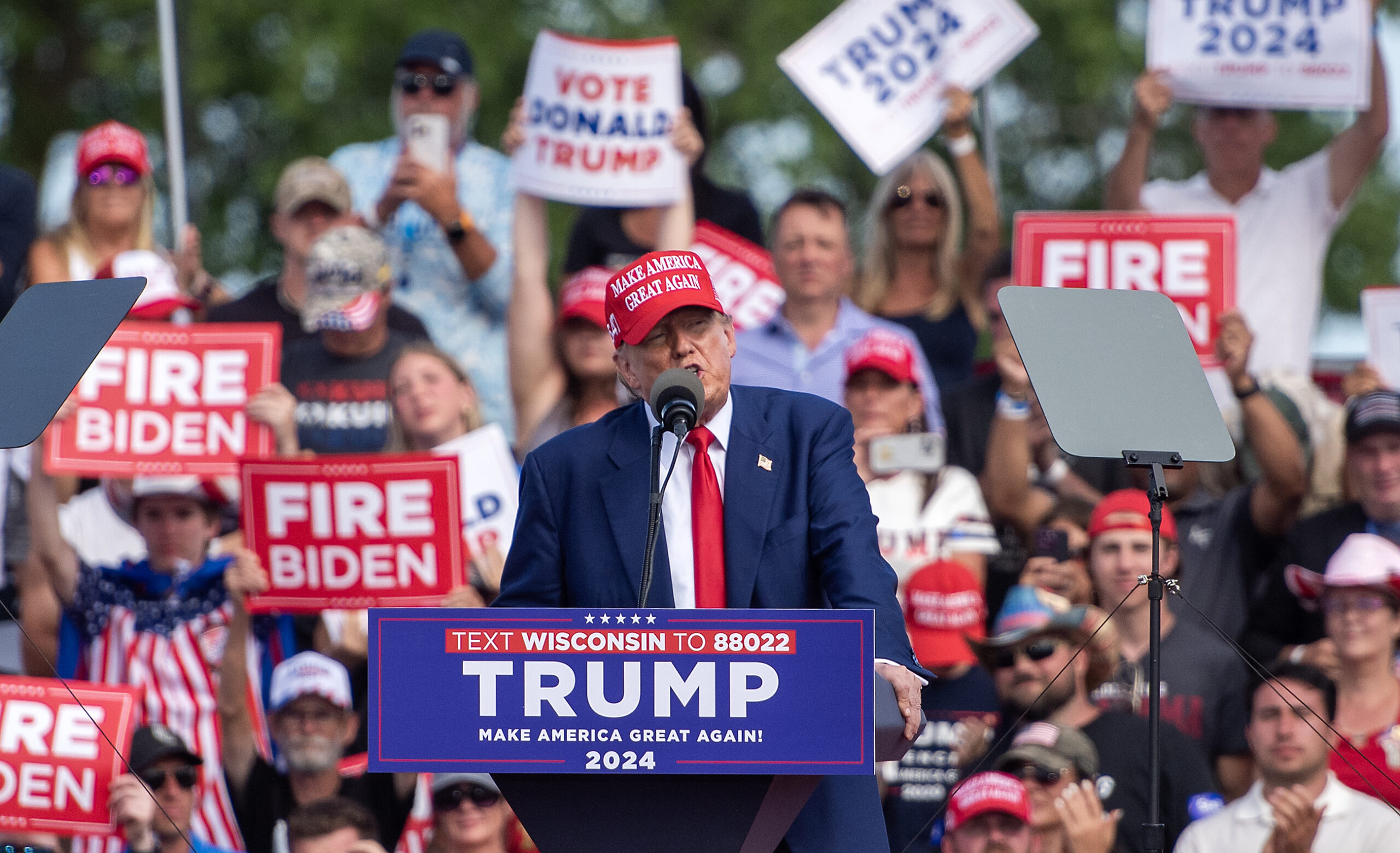
When Marquette included third party candidates, Trump led the field with 43 percent while Biden received 40 percent. Leading independent candidate Robert F. Kennedy Jr. got 8 percent support, a decline from 13 percent in April and 17 percent in January. Kennedy had been polling better with Republicans than with Democrats, but he lost some GOP support in the latest survey.
“That’s one of the reasons that, in the multi-candidate case, Trump is a little bit ahead compared to last time when Trump led by just 1 point in the multi-candidate race,” Franklin said. “It’s not that Biden has changed so much, it’s that Republicans have reduced their support for Kennedy a little bit compared to where they were last time.”
This poll also reflects the arrival of Libertarian Party candidate Chase Oliver, and also measured support for the Green Party’s Jill Stein and independent candidate Cornell West. Oliver and Stein each received 2 percent while West polled at 4 percent.
Overall, all presidential candidates are viewed more unfavorably than favorably. Biden’s overall favorability was negative 18 percent while Trump’s was negative 16.
About 17 percent of voters dislike both candidates equally, a higher number than the last time the two faced off in 2020, when 11 percent of voters were — to use a Franklin term — “double-haters.”
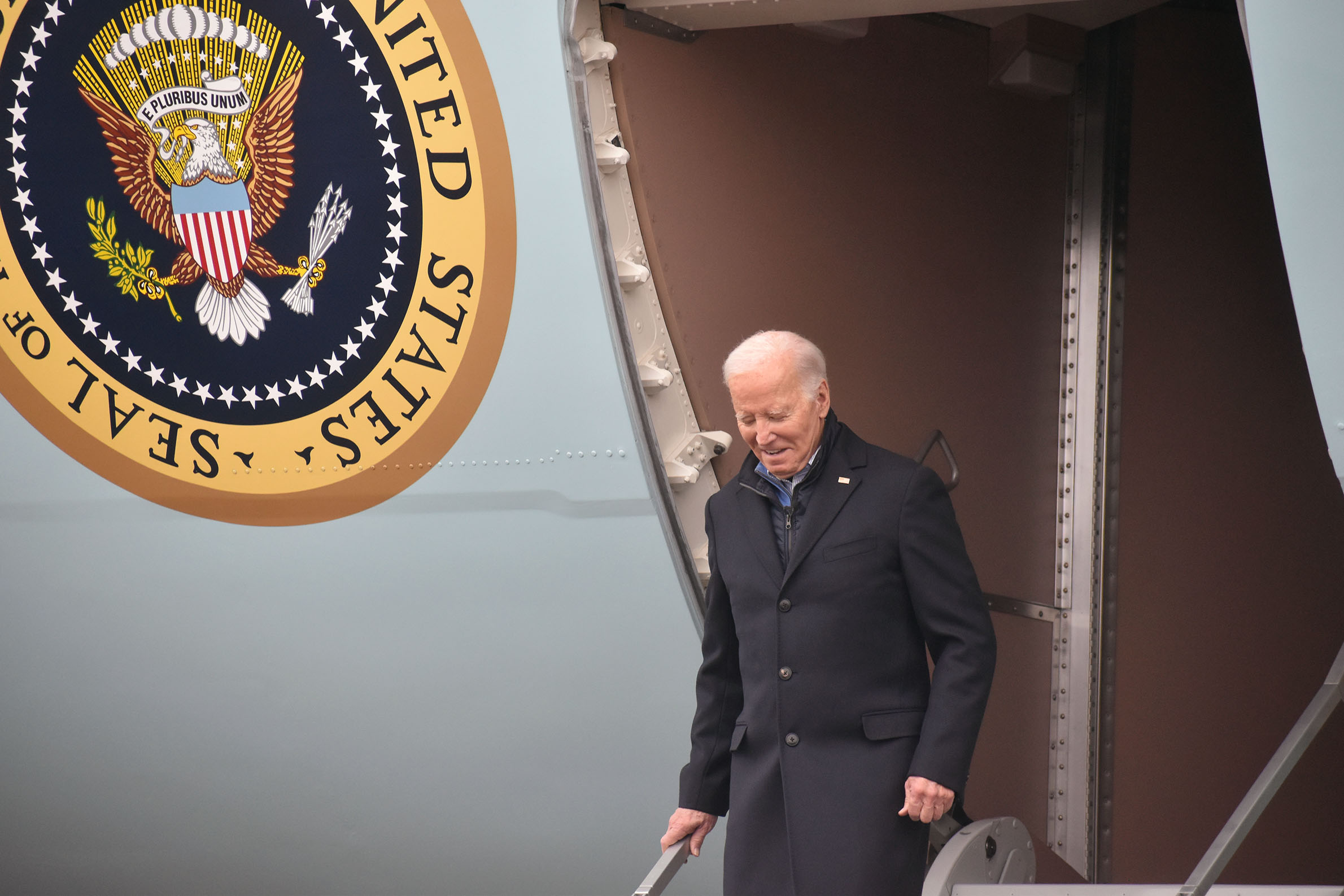
Baldwin continues to lead Senate contest as Republican voters get to know Hovde
In the U.S. Senate race, Marquette found Baldwin continuing to lead Hovde among both registered and likely voters.
When initially asked about the race, Baldwin received 45 percent support among registered voters compared to 38 percent for Hovde, with 17 percent undecided. Baldwin’s margin was larger among likely voters, with 49 percent supporting her compared to 40 percent for Hovde and 11 percent undecided.
When Marquette pressed undecided voters to pick a candidate, Baldwin led 52-47 among both registered and likely voters.
“The percent undecided is bigger than the margins between the candidates,” Franklin said. “And so, you know, as close as the race is, there is still room for those undecideds — if they were to break more heavily to one side or the other — to tip this close race.”
In her previous two races for U.S. Senate, Baldwin won handily, and frequently outperformed other Democrats. In this poll, about 12 percent of Republicans say they would support her, compared to 5 percent of Democrats who said they would support Hovde.
“We don’t see a lot of crossover voting these days,” Franklin said.
He also said that Hovde’s numbers are expected to change as voters get to know the candidate.
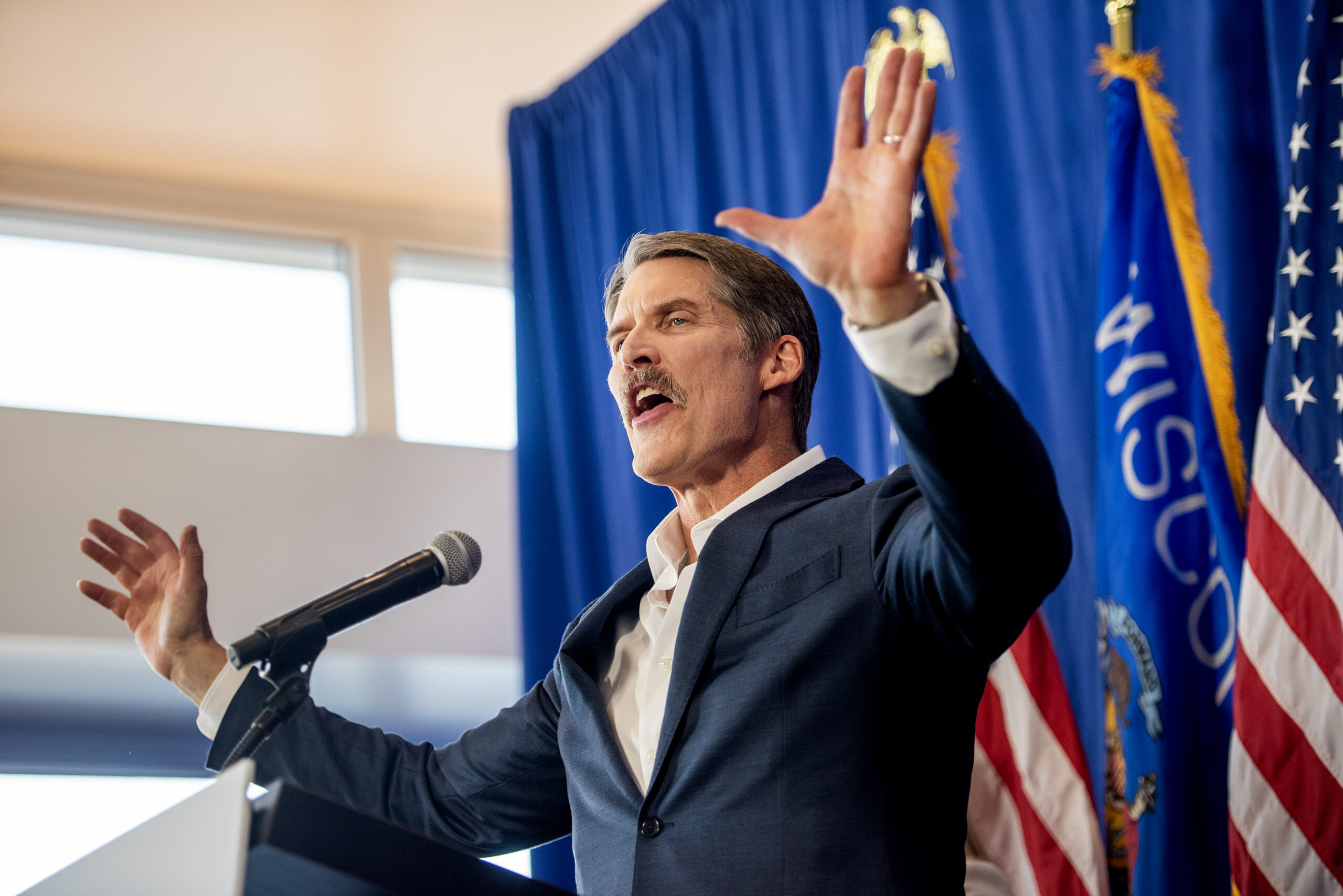
Survey was Marquette’s first since Trump’s guilty verdict
The Marquette survey took place after Trump was found guilty on 34 felony counts of falsifying business records to cover up a hush money payment to adult film star Stormy Daniels ahead of the 2016 presidential election.
Three-quarters of voters surveyed said they’ve been paying attention to these developments. Fifty-five percent agreed with the findings that Trump is guilty, compared to 36 percent who think the jury’s findings were wrong. About half of voters agreed with the move to prosecute Trump, compared to 42 percent who said he should never have been taken to court.
Most voters say Trump should face a penalty, with 36 percent supporting jail time and 14 percent supporting probation, while 27 percent say he should face no penalty.
Trump’s sentencing is set for July 11, just a few days before the Republican National Convention begins in Milwaukee.
Biden’s son Hunter also faced trial recently, and was convicted of three felonies related to lying when purchasing a gun. There was more bipartisan support for his prosecution, with 76 percent of voters saying he should have been prosecuted, compared to 11 percent who said he should not. That includes “an awful lot of Democrats” who support prosecution, said Franklin.
Once again, the poll also identified an overall lack of enthusiasm among all voters for this race, which pits Biden and Trump against each other for the second time, even as both face low favorability ratings.
“People are just not enthusiastic, what can I tell ya? And they’re not getting more enthusiastic,” said Franklin.
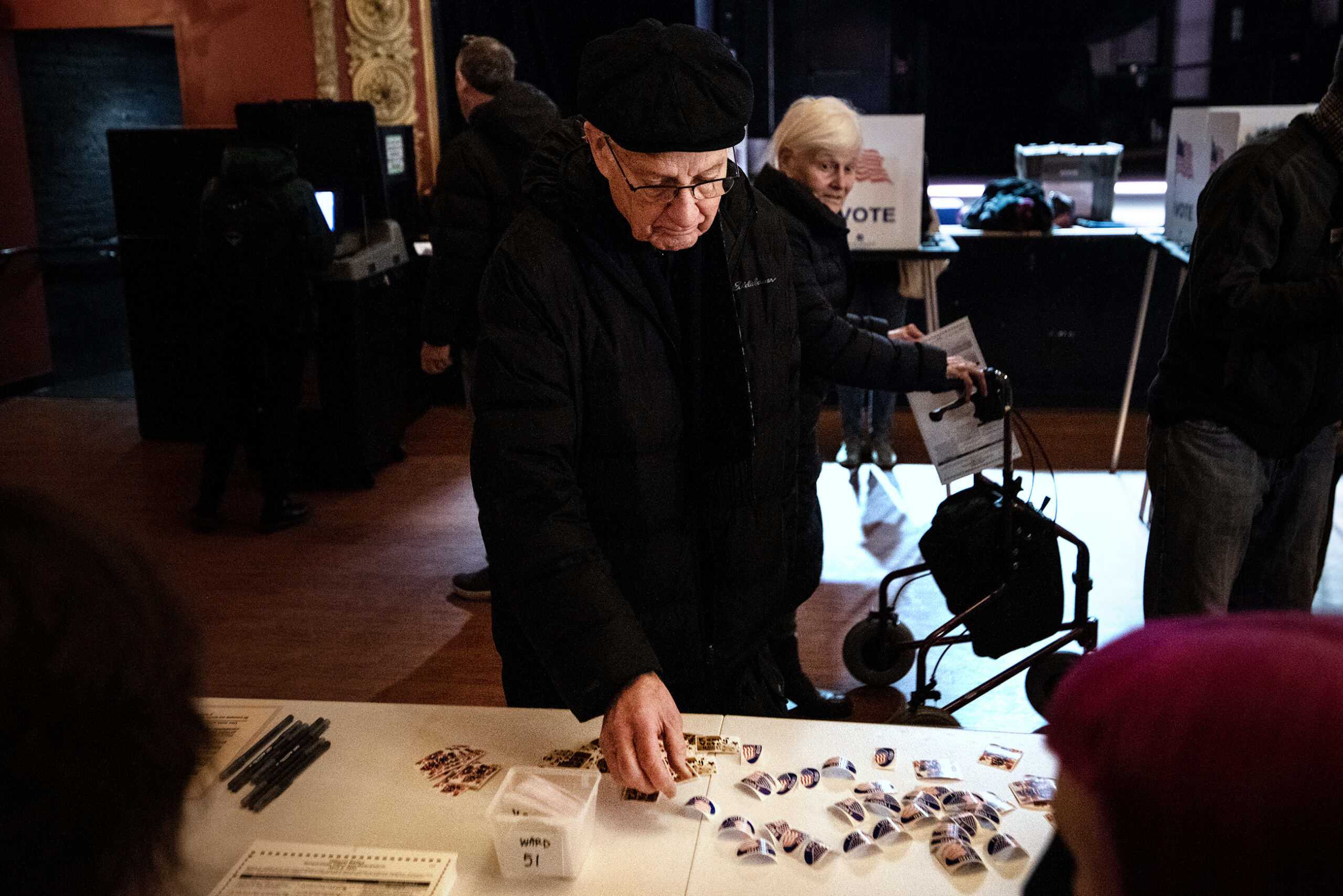
Enthusiasm is linked to vote choice, however. Insofar as any voters are enthusiastic, they split more for Trump, at 61-39. But among all other voters — the “somewhat,” “not very” and “not at all” enthusiastic — Biden has an edge. He leads 65-33 “among people who are bored to death, and not at all enthusiastic,” said Franklin.
That could change after a busy summer of campaign events, including the first presidential debate on Thursday, to be held in Atlanta. Wisconsinites will also have the Republican National Convention in their backyard when it comes to Milwaukee in July. The Democratic National Convention will be just across the state border in Chicago later this summer.
“It’s entirely possible that this summer’s events boost this enthusiasm level and remake the landscape,” Franklin said. “But … those changes will be new, because they haven’t happened so far in this election cycle.”
And the enthusiasm gap raises a question about how that will affect turnout, Franklin added.
Trump has a lead among independent voters, 57 to 41 percent. That’s also reflected in the issues that voters from each party care about, where there is little overlap.
Overall, 31 percent of voters say the economy is their top issue, followed by 19 percent for immigration and 15 percent for abortion.
Among Democrats, the top issue was abortion, while Republicans overwhelmingly cared most about the economy and immigration.
Wisconsin Public Radio, © Copyright 2025, Board of Regents of the University of Wisconsin System and Wisconsin Educational Communications Board.

